
“ As a survivor of the 2004 Gatumba Massacre—along with my entire family—where members of the Banyamulenge community, a Tutsi ethnic group from the southern DRC, were brutally killed, I stand with all the signatories of this letter to say: Never again. We will not remain silent in the face of genocidal violence in our country and region. While the international community turns a blind eye to the ongoing slaughter of Congolese citizens—particularly Tutsis and Hema—our voices will not be silenced. I am deeply grateful for the global support this letter has received, a clear testament that the world must listen and act swiftly and that we will not allow history to repeat itself. “
(Adele Kibasumba, Survivor of the 2004 Gatumba Massacre, President of Mahoro Peace Association)
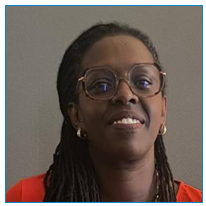
“ In April 1994, in Rwanda, I saw the beheading of practically my whole family because they were Tutsi . I have survived to honor the memory of those who perished. I feel obliged to testify in order to condemn the crimes of genocide and to fight against hatred such as that which exist against the Tutsi of the Congo. My insatiable thirst for life inspired me to start a family, and I vow to spend the rest of my life to educating others and keeping our memories alive. ”
(Félicité Iyamukuru, Survivor of the Genocide against Tutsi in Rwanda)
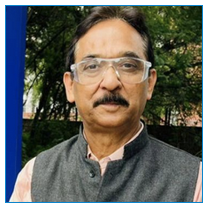
“ Congolese Tutsis are facing genocide. Mothers weep, children perish, and their blood stains the earth. We cannot sit silent on the extermination of an entire community. Let us join hands to fight for a humanitarian cause. Killings of the innocent can never be accepted in a civilized world. ”
(Professor Ambrish Saxena, South Asian University, New Delhi, India)
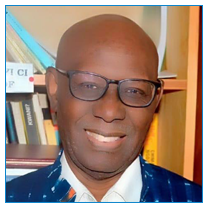
“ In 1885, the racist mindset of the European elites prevented them from realizing that they were dealing with human beings, and as a result, Africa was divided up like a giant zoo in Berlin. It must be acknowledged that imperialist blindness is still causing suffering on the African continent today, especially in the East of the Congo, even if it means being accused of calling forth the ghosts of the past. I’m not claiming that a new anti-Tutsi genocide in the Congo is unavoidable, but the simple fact that it is a possibility should alert us. “
(Boubacar Boris Diop, Writer, Neustadt International Prize for Literature in 2022, Dakar, Sénégal)
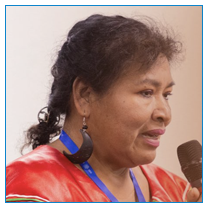
“ The Congolese Tutsis, persecuted and expelled from their lands, remind me of our own situation. We, the Indigenous peoples, are the ancestral owners of our lands and territories, and from there we obtain our food, our medicines, and we practice our customs and traditions. There is no right to take away or deny our identity. Never again without the Indigenous peoples! Recognizing the Rwandophone landowners as full citizens of the Congo is the only way to treat their land as Congolese. ”
(Nazareth Flores cabao, Vice President of CEPIB, Central de Pueblos Indígenas de Beni, Bolivia)

“ The United Nations must take all measure to protect Tutsi communities in the Democratic Republic of Congo. It must also ensure that the genocide of Tutsi in Rwanda in 1994 does not continue sprouting in different countries. ”
(Professor Wajiha Raza Rizvi, Pakistan)

“ The global threat of extermination hanging over the Congolese Tutsi recalls, for specialists of the Tutsi genocide, the situation before the genocide when the international community overwhelmed future victims and granted complete impunity to the perpetrators leading a genocidal process. The United Nations in particular bears considerable responsibility for the 1994 Tutsi genocide, for not having prevented and stopped it. Today the most frightening past is repeating itself and with it the same injustice done to the Tutsi. Researchers, historians and specialists cannot resign themselves to this and solemnly warn the Secretary-General in this open letter. The United Nations cannot deny being informed of this. It must take action. ”
(Professor Vincent Duclert (CESPRA, EHESS-CNRS, Paris/France)
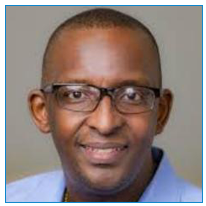
“ The letter reminds us that the principle of the intangibility of colonial boarders must be linked to the rights of the communities who live in the land of their ancestors. People and land are two sides of the same coin. Otherwise, the government of the Congo will be behaving like settler colonialists who expelled indigenous people from their homelands. There will be war as long as the Tutsi Congolese do not have the right to life and citizenship. “
(Professor Jean-Pierre Karegeye, Director, Interdisciplinary Genocide Studies Center, Boston/USA)
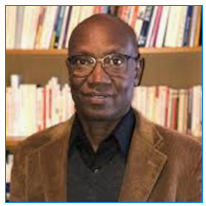
“ The war waged by the M23 against the Congolese government has many causes, some distant and others contemporary. One reason is the arbitrary division of Africa by Western countries, which split the same groups as the Banyarwanda among three countries: Congo, Rwanda, and Uganda. However, this is primarily due to the difficulty most independent African countries, particularly those that were once part of the Belgian colonial empire, have in formulating a coexistence policy that ensures equal rights for all. Since the independence of Congo, the Banyarwanda and especially the Batutsi have always been considered second-class citizens, to be tolerated or killed, as was the case after the shock of the Tutsi genocide in Rwanda, when the perpetrators retreated to the Rwandan-speaking areas of North Kivu. No group of people will indefinitely tolerate the injustices they suffer. “
(Professor Josias Semujanga, Member of the Canadian Royal Society, Professor of Francophone Literature, Université de Montréal, Montreal, Canada)